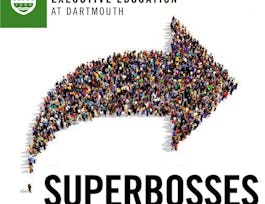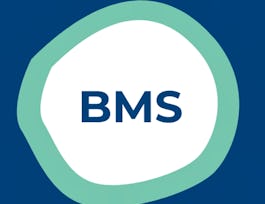The path for entrepreneurs to grow their companies outside of well-developed entrepreneurial ecosystems like Silicon Valley is challenging. Most markets around the world do not look like Silicon Valley, and they never will. But there are other models to support new businesses. In transitioning markets (where entrepreneurs do not have much access to private sector financing), government officials, donors, and business leaders are experimenting with creative approaches to support the growth of entrepreneurs. Northeast Ohio, whose largest city is Cleveland, is one such community. During our time together in this course, we will be exploring some of these innovative approaches.



Beyond Silicon Valley: Growing Entrepreneurship in Transitioning Economies

Instructor: Professor Michael Goldberg
41,474 already enrolled
Included with 
(125 reviews)
Details to know

Add to your LinkedIn profile
6 assignments
See how employees at top companies are mastering in-demand skills


Earn a career certificate
Add this credential to your LinkedIn profile, resume, or CV
Share it on social media and in your performance review

There are 7 modules in this course
The Course Welcome and Overview video lays the foundation for the course and provides context for what we are calling the “Cleveland Case Study.” We’ll explore how my hometown of Cleveland, Ohio is working to support start-up companies with the help of government and philanthropy/donors working in conjunction with the private sector.
What's included
1 video3 readings
The Role of Government video lecture examines the role of government in an entrepreneurial ecosystem. You will learn how an entrepreneur from India developed a technology in a university lab and turned it into a medical device company in Cleveland with the support of government funding. As with all of lectures, you will also hear international perspectives on the topic, this time from Vietnam and Tunisia. In reviewing this lesson, consider the following questions. How can governments avoid bias? What is follow-on capital? What is government matching funds? How can both be used as tools to support startup initiatives? How can a government measure the success of its entrepreneurial support programs? What role does corruption play in government support?
What's included
1 video1 reading1 assignment1 peer review5 discussion prompts
The Role of Philanthropy/Donors video lecture explores how foundations in Cleveland came together to form the The Fund for Our Economic Future (http://www.thefundneo.org/) to provide funding alongside government and the private sector to entrepreneurs. Consider the following questions when reviewing the materials. Why donors get involved in supporting entrepreneurs? How donors may differ from government and private investors? What are the challenges of maintaining donor interest in entrepreneurship over the long haul? What makes philanthropies decide to dedicate resources to entrepreneurship and economic development? What is donor fatigue and what causes it? How are the metrics of success for a philanthropy similar and different from those of the government/private sector? Are donors more or less risk tolerant than their government and private sector counterparts? What role can corporations play in the international philanthropic setting?
What's included
1 video1 reading1 assignment1 peer review4 discussion prompts
Governments and donors are often forbidden by law or uncomfortable funding entrepreneurs directly so they provide grants to non-governmental organizations (NGOs) who then in turn offer capital, mentoring or other services to promising entrepreneurs. The Role of Intermediary Organizations/NGOs video lecture examines several examples of NGOs that do this type of work in Cleveland and around the world. Some key points covered in the lecture are: Why are intermediary organizations created? How do intermediary organizations measure success? What are the challenges of intermediary organizations?
What's included
1 video1 reading1 assignment1 peer review5 discussion prompts
The Leveraging Anchor Institutions video lecture focuses on the role that anchor institutions such as universities can play in supporting the growth of entrepreneurship including supporting increased commercialization activity, licensing versus new company formation, and measuring success. While completing this module, consider the following questions. What are the different ways that anchor institutions stimulate entrepreneurship? Why might an anchor institution provide financial support for an early stage company? How can an anchor institution's research capabilities translate into support for early stage companies? What are the different ways that anchor institutes measure their own success?
What's included
1 video1 reading1 assignment2 peer reviews5 discussion prompts
Entrepreneurs working outside of Silicon Valley with struggle with every day: where to find capital (and mentoring) to grow their start-up companies. The Access to Capital and Mentoring module includes three video lectures: Seed Accelerators, Angel Investors, and Venture Capital. We trace how donors and government backers in Cleveland and selected international markets have come together with the private sector to support each of these areas. While completing this module, consider the following questions. Given the challenges, why would an angel investor invest in a highly risky startup? How is an angel investor motivated differently from other investors? Who has traditionally supported seed accelerators? Why do seed accelerators ask for equity in the companies that they support?
What's included
3 videos1 reading1 assignment1 peer review6 discussion prompts
The Course Wrap-Up and Looking Ahead video lecture explores how much progress has been made in Cleveland and if the situation has really improved for entrepreneurs. Thought leaders and entrepreneurs provide advice for other communities around the world looking to support the growth of entrepreneurship.
What's included
1 video1 assignment1 peer review
Instructor

Offered by
Recommended if you're interested in Entrepreneurship

Dartmouth College

University of Maryland, College Park

Copenhagen Business School

University of Cape Town
Why people choose Coursera for their career




Learner reviews
125 reviews
- 5 stars
69.35%
- 4 stars
18.54%
- 3 stars
4.83%
- 2 stars
4.83%
- 1 star
2.41%
Showing 3 of 125
Reviewed on Nov 2, 2016
Very helpful, I definitely am much more equipped with ideas and proven methods to grow as an entrepreneur even with the challenges in economies like mine.
Reviewed on Apr 24, 2019
Review classmate assignment or work some times make me difficulties due to not found it properly. Need easy to searching.
Reviewed on Dec 9, 2023
Loved it! Amazing for understanding local entrepreneurial ecosystems and how to build upon them.
New to Entrepreneurship? Start here.

Open new doors with Coursera Plus
Unlimited access to 10,000+ world-class courses, hands-on projects, and job-ready certificate programs - all included in your subscription
Advance your career with an online degree
Earn a degree from world-class universities - 100% online
Join over 3,400 global companies that choose Coursera for Business
Upskill your employees to excel in the digital economy
Frequently asked questions
Access to lectures and assignments depends on your type of enrollment. If you take a course in audit mode, you will be able to see most course materials for free. To access graded assignments and to earn a Certificate, you will need to purchase the Certificate experience, during or after your audit. If you don't see the audit option:
The course may not offer an audit option. You can try a Free Trial instead, or apply for Financial Aid.
The course may offer 'Full Course, No Certificate' instead. This option lets you see all course materials, submit required assessments, and get a final grade. This also means that you will not be able to purchase a Certificate experience.
When you purchase a Certificate you get access to all course materials, including graded assignments. Upon completing the course, your electronic Certificate will be added to your Accomplishments page - from there, you can print your Certificate or add it to your LinkedIn profile. If you only want to read and view the course content, you can audit the course for free.
You will be eligible for a full refund until two weeks after your payment date, or (for courses that have just launched) until two weeks after the first session of the course begins, whichever is later. You cannot receive a refund once you’ve earned a Course Certificate, even if you complete the course within the two-week refund period. See our full refund policy.

